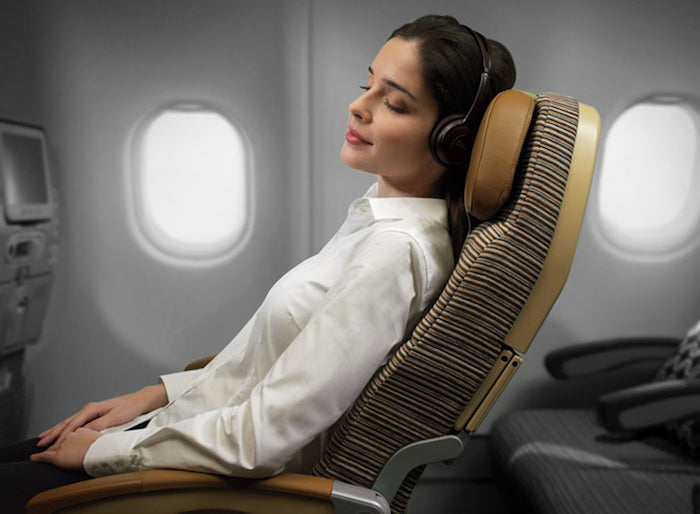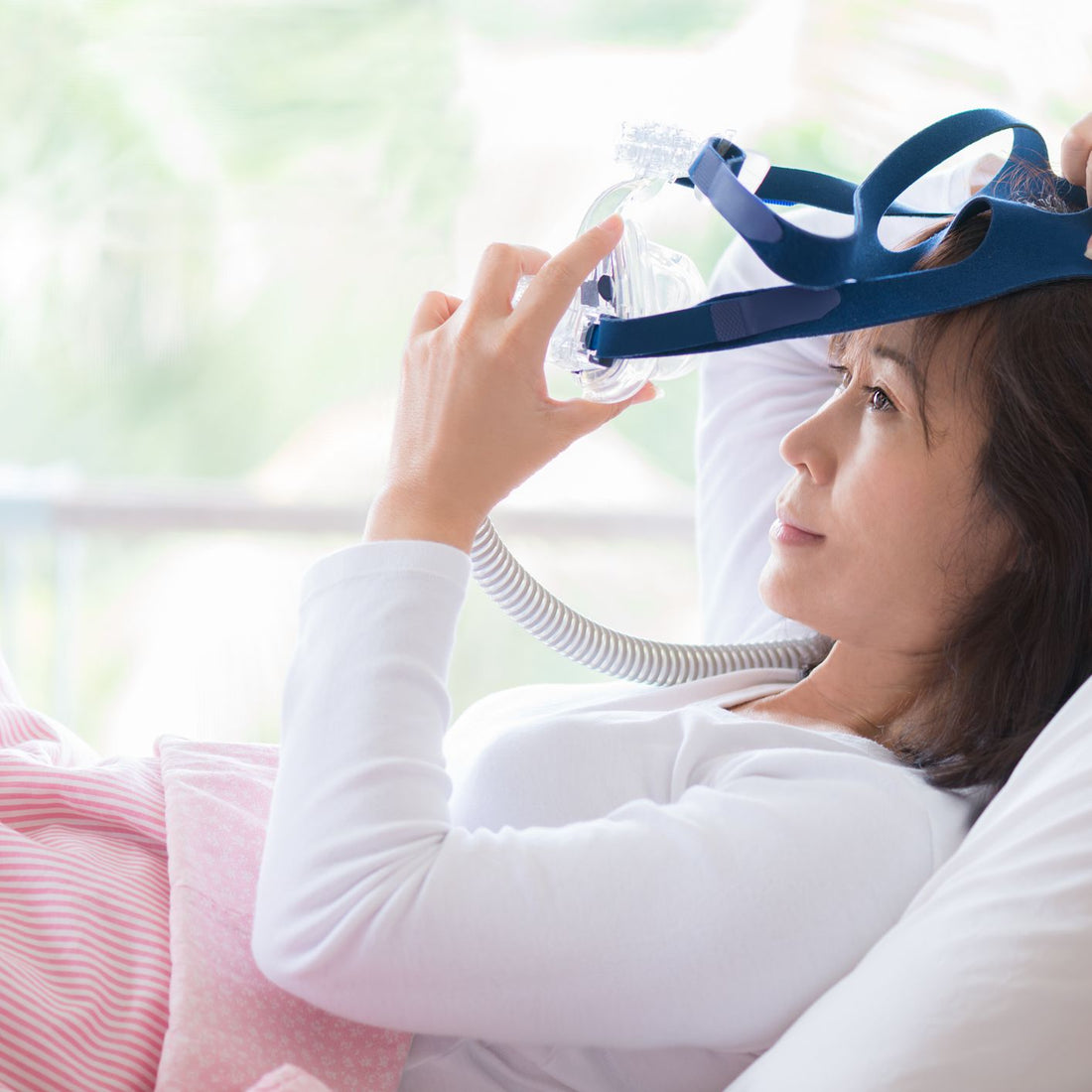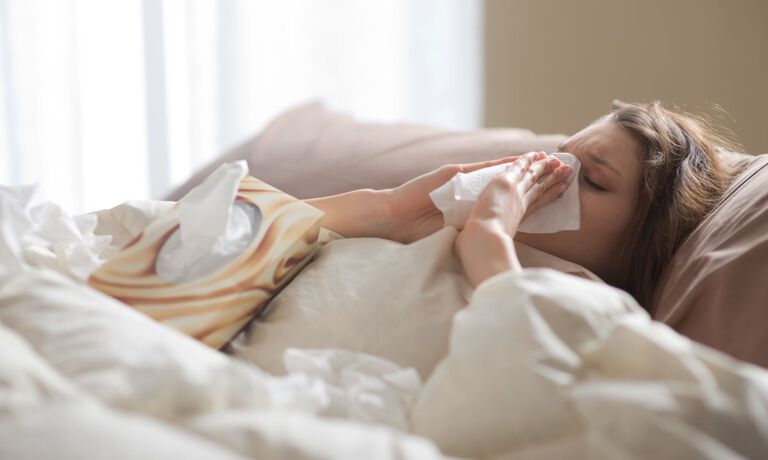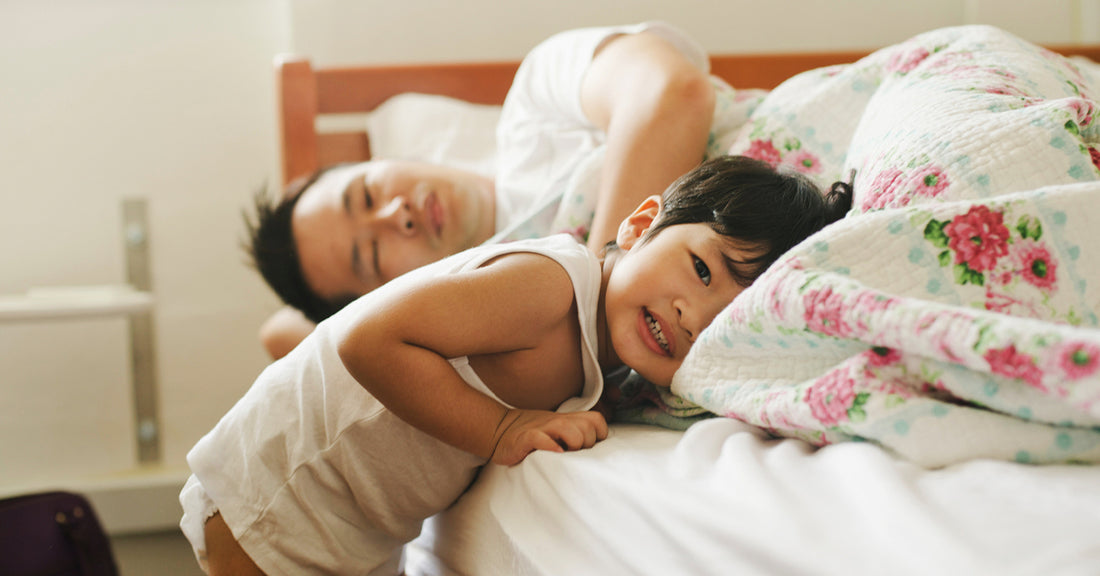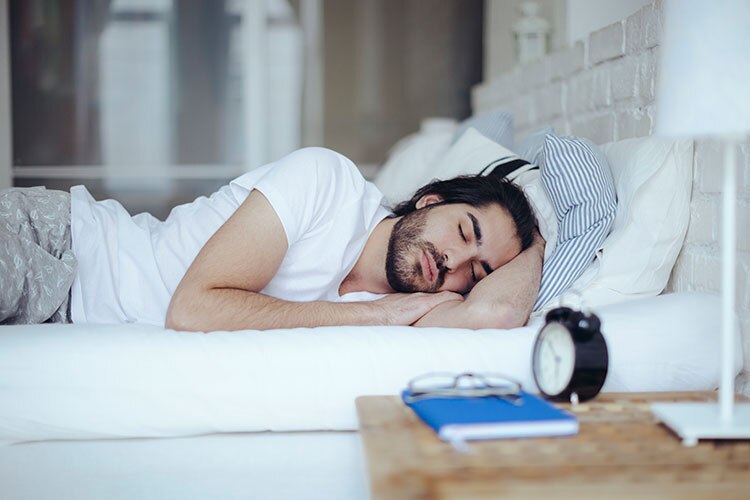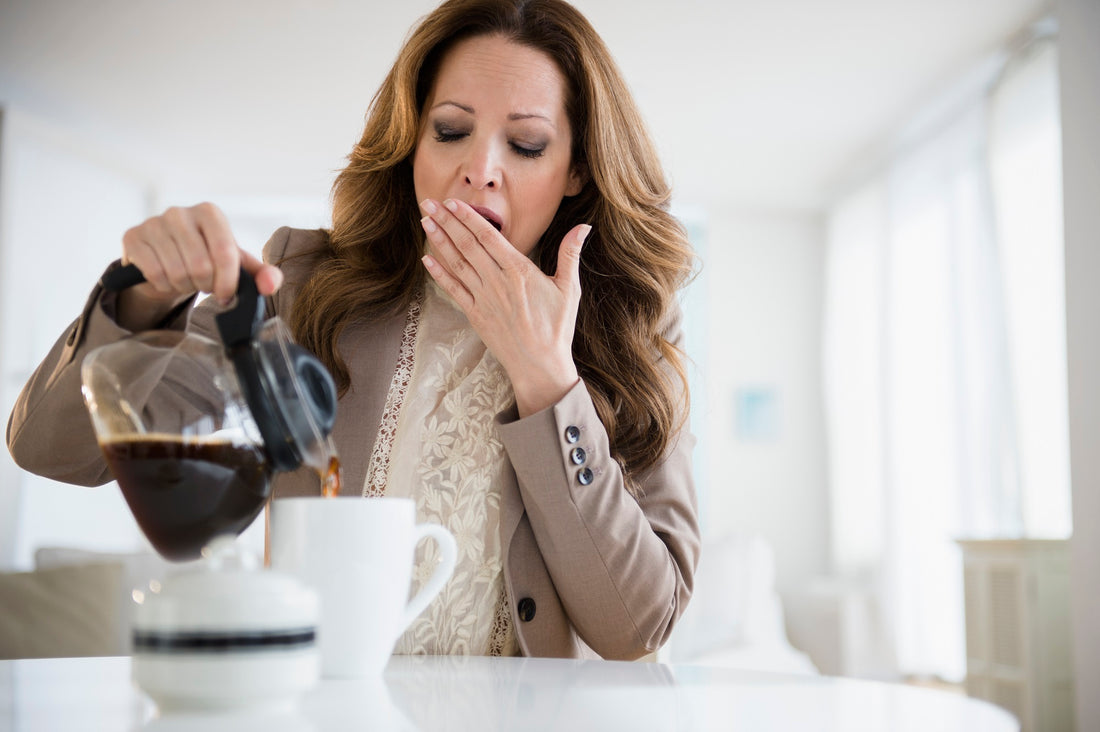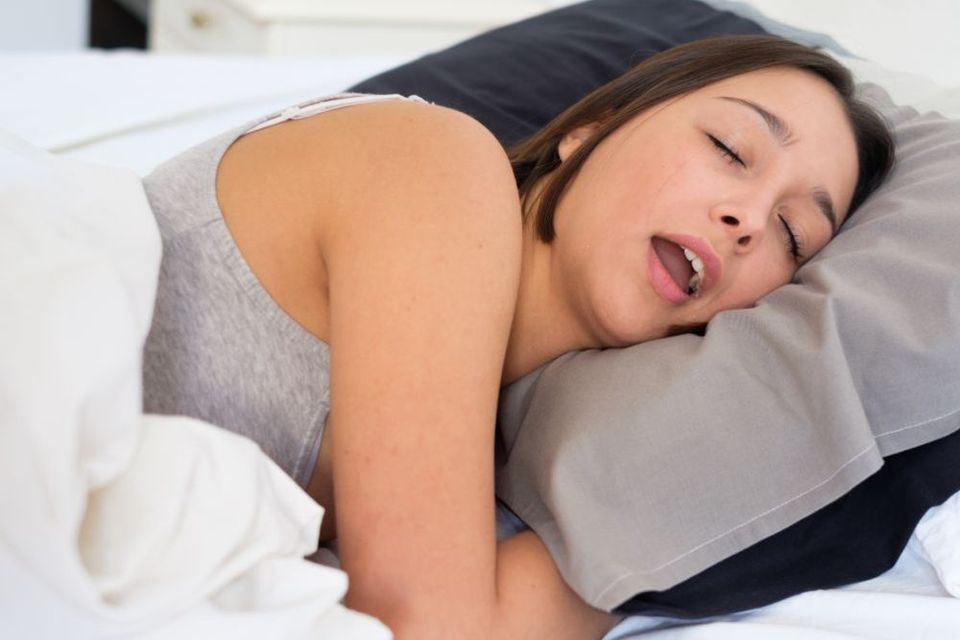News
Sleep Tips for the Holidays
wp:paragraph The holiday season can be such a wonderful time of year, but it can also be very disruptive to your sleep schedule in a number of ways. Don’t let the lack of sleep turn you into a grinch! Here are a few ways in which your sleep can be disrupted over the holidays, and how to fix it. /wp:paragraph wp:paragraph Being too busy: yes, the holidays are a busy time between parties, gatherings, shopping, and more. This can make you feel overwhelmed and in turn, can affect your sleep if you are feeling anxious about everything you have to do. Take some time to slow down. Prep in advance as much as you can so you don’t feel as overwhelmed and try not to take on more than you can handle. /wp:paragraph wp:paragraph Eating habits: it’s natural to want to indulge in some of your favorite foods at this time of year, it’s just too irresistible! But be careful, going to bed when you feel too bloated can disrupt your sleep and cause insomnia, not to mention it can be very uncomfortable. Pace yourself at the dinner table and stop eating when you feel full. /wp:paragraph wp:paragraph Drinking too much: whether you are gathering with loved ones or just enjoying a quiet night at home where you don’t have to work the next day, many people tend to go overboard drinking during the holidays. Drinking too much alcohol before bedtime can disrupt your REM sleep, making for a very restless night. An extra drink or two is usually okay but don’t go too crazy, and be sure to stay hydrated. /wp:paragraph wp:paragraph Not enough exercise: while it may seem too easy to just sit on the couch watching your favorite Christmas movies, be sure to get up and get in some physical activity. Try to go for a walk at least once a day or take this time to partake in your favorite outdoor winter activity. It can also be a great family bonding opportunity. /wp:paragraph wp:paragraph Sleeping in and staying up late: yes, late nights happen, and if you stay up late then you may find yourself sleeping in as a result, especially if you know you don’t have to work the next day. Slip-ups happen and that’s okay! Just make sure you don’t deviate too much from your routine and you get back on track the next day. /wp:paragraph
about Sleep Tips for the HolidaysSleep Tips for Holiday Travel
wp:paragraph Thinking of going away over the holiday? Many people experience poor sleep whenever they travel, whether they are going to an unknown destination or staying with family. All of the excitement and disrupted routines surrounding the holidays do not help either. /wp:paragraph wp:paragraph Whether you are going on a road trip or braving the airports to venture somewhere a little further away, here are a few tips to keep in mind to help make sure you can still get a good night’s sleep wherever you are. /wp:paragraph wp:paragraph Plan ahead: stress is one big reason why sleeping away from home is not always great. Take the time beforehand to figure out other factors like packing, your itinerary, and other logistics to reduce stress while you are away. /wp:paragraph wp:paragraph Maintain a routine: while your normal sleep routine may be disrupted, try your best to stick to your usual sleeping routine. Try to go to bed as close to your normal bedtime as you can and limit the use of technology for 1 hour before you go to bed. If you are traveling to a different time zone, be sure to adjust your sleep to the current time zone in order to make the most of your trip. /wp:paragraph wp:paragraph Bring the essentials: Be sure to pack a few sleeping essentials such as earplugs, sleeping masks, melatonin, warm pajamas, and your favorite book just to make yourself feel at home and more comfortable at bedtime. /wp:paragraph wp:paragraph Practice healthy habits: sticking to healthy diet and exercise habits will help with your sleep. Eat a balanced diet, get some exercise throughout the daytime, and don’t overdo it with alcohol. /wp:paragraph wp:paragraph Relax and enjoy the holidays: it’s a happy and joyous time of year so make sure you give yourself time to enjoy it! Bad sleep happens to everyone at some point. If you have one rough night’s sleep, give yourself a little grace. It’s just one night and you can get back on track the next day. /wp:paragraph wp:paragraph After reading sleep tips for holiday travel you can read "Travelling with a CPAP Machine". /wp:paragraph
about Sleep Tips for Holiday TravelGet Your CPAP Ready For The Winter
wp:paragraph The nights are starting to get colder, but this doesn’t mean that your sleep needs to suffer as a result. Sleep apnea symptoms have been known to be much worse in the wintertime, thanks to the cold and dry air that can dry out your mouth and nasal passages, making it more difficult to sleep. If you use a CPAP machine, then now is the time to make sure it is ready for winter use! Here are four things to think about when it comes to getting your CPAP ready for the winter. /wp:paragraph wp:paragraph Don’t skip humidification: This doesn’t just apply to the humidifier you may use in your bedroom to prevent dry air (though this is beneficial in sleeping better) using a humidifier and/or heater with your CPAP machine will help to prevent your airway from drying out and make for a more comfortable user experience overall. /wp:paragraph wp:paragraph Make sure the parts are in working order: Take a moment to do a quick inventory of all the parts on your CPAP machine, including the tubing, the mask, humidifier and any filters that may be required. If a part is wearing down or not in good working condition, then this can cause the rest of the CPAP to not work properly. Don’t wait until it’s too late to replace these parts, make sure you get them ahead of time. /wp:paragraph wp:paragraph Keep the machine clean: Regular cleaning of your CPAP is important at any time of year, but this is especially the case in the wintertime, when your humidifier and/or heater is being used on more of a regular basis and moisture from this builds up. /wp:paragraph wp:paragraph Don’t skip the CPAP when you are sick: Colds are no fun, and it may be tempting to skip the CPAP for just a night or two if you are feeling stuffed up but don’t do this! Rest is extremely important for recovery, and skipping the CPAP even for just a night can cause your sleep apnea symptoms to worsen and make for a poor night’s sleep. /wp:paragraph
about Get Your CPAP Ready For The WinterTips for Sleeping When You Have a Cold
wp:paragraph The dreaded cold and flu season is upon us, and chances are, you may be affected by a cold or flu at some point, no matter how vigilant you are at washing your hands and disinfecting the area around you. Many cold and flu symptoms also tend to make sleeping incredibly uncomfortable, which is the last thing you want to be able to fight it off. Here are a few tips for getting a good sleep when you have a cold. /wp:paragraph wp:paragraph Get lots of rest: you may have heard this many times already but giving your body a chance to rest is truly the best medicine for fighting off colds. Going to bed a little earlier and waking up a little later than normal is okay. You may also consider a mid-day nap as well. Lounging on the couch and binge-watching your favourite show is okay too, but don’t overdo it. /wp:paragraph wp:paragraph Take over-the-counter cold medicines: be sure to keep some Advil or Tylenol on hand to help you sleep better, especially ones geared towards alleviating cold and flu symptoms. There are lots of cold & flu medicines available for “nighttime” use that will help you sleep, but be sure to read the labels carefully and don’t take more than the recommended dosage. /wp:paragraph wp:paragraph Keep the room humidified: the cold air outside can dry out the air in your bedroom, which has a counter-intuitive effect on alleviating cold symptoms. Using a humidifier to help moisten the air will help you sleep better. /wp:paragraph wp:paragraph Stay hydrated: your body will need lots of liquids to help fight your cold off. Drink lots of water, and herbal tea with honey is especially beneficial. As a bonus, add a small slice of lemon. Avoid caffeine and alcohol as they will both leave you dehydrated. /wp:paragraph wp:paragraph Alleviate any sinus discomfort: Blocked sinuses are common when you have a cold, and this can make sleeping very uncomfortable when you can’t breathe properly. Try propping your head up slightly with a pillow to help you breathe a bit easier. /wp:paragraph wp:paragraph Take a hot shower or bath: the heat from doing either of these things will help to relax your muscles and reduce your cold symptoms before bed. /wp:paragraph wp:paragraph Contact us for more information. /wp:paragraph
about Tips for Sleeping When You Have a ColdThe Connection Between Sleep Apnea and Genetics
wp:paragraph If you have someone in your family who has been diagnosed with sleep apnea, it may be natural to wonder if you will develop sleep apnea too. /wp:paragraph wp:paragraph There has been a lot of research done over the years that looks at the connection between sleep apnea and genetics. While sleep apnea can run in the family, it is not necessarily known to be a condition that is genetic. There are, however, many risk factors of sleep apnea that do involve genetics. Here are a few of them: /wp:paragraph wp:paragraph Gender: sleep apnea is generally more common in males than females, but gender alone doesn’t always lead to a sleep apnea diagnosis, there are usually other factors involved. /wp:paragraph wp:paragraph Lifestyle: certain lifestyle factors can be genetic and may lead to a sleep apnea diagnosis, such as excessive drinking and smoking, especially close to bedtime. Both of these things have been known to not only be genetic but also lead to a sleep apnea diagnosis. /wp:paragraph wp:paragraph The shape of your jaw or airway: this is usually a big risk factor in diagnosing sleep apnea, especially with certain features such as a larger tongue, large tonsils, overbite, or any other facial structure that risks crowding the space at the back of your throat. Facial structures like this are usually hereditary and tend to look the same from generation to generation. /wp:paragraph wp:paragraph Body type: individuals who are overweight or obese have a greater risk of being diagnosed with sleep apnea. Body fat distribution tends to be genetic most of the time, and a lot of genetic lifestyle factors and body structures can lead to a larger body type, which in turn can increase the risk of developing sleep apnea. /wp:paragraph wp:paragraph Pre-existing health conditions: there are many genetic health conditions that can be a huge risk factor in a sleep apnea diagnosis. Some of these include heart disease, stroke, high blood pressure and type 2 diabetes. /wp:paragraph wp:paragraph Contact us for more information. /wp:paragraph
about The Connection Between Sleep Apnea and GeneticsOSA vs CSA: The Main Differences
wp:paragraph Sleep apnea is a serious sleep disorder that comes in two different forms; Obstructive Sleep Apnea (OSA) and Central Sleep Apnea (CSA). While both forms of sleep apnea cause a pause in breathing while you sleep, the reasoning behind this breathing interruption is what divides these two forms. /wp:paragraph wp:paragraph Obstructive Sleep Apnea /wp:paragraph wp:paragraph OSA is the more common of the two types. This involves an actual blockage or collapse of the airway that causes the apnea episode. OSA is most often treated with the use of a CPAP machine, and it more commonly occurs in patients who are male, middle-aged, and/or overweight. /wp:paragraph wp:paragraph Central Sleep Apnea /wp:paragraph wp:paragraph CSA is not as common as the two types of sleep apnea. Unlike OSA, the pause in breathing is actually caused by your brain not signaling the airway muscles to take in the air you breathe while you are sleeping, thus causing apnea episodes. Anyone can get CSA, though it is more common in adults over age 65 and usually occurs as a result of a serious illness that requires medical intervention. /wp:paragraph wp:paragraph The differences /wp:paragraph wp:paragraph As mentioned above, CSA does not involve a physical blockage of the airway the way OSA does. This means that a CPAP machine is generally more effective for OSA patients (though some doctors may occasionally recommend a CPAP machine for CSA patients too). Snoring, while a very common symptom for OSA, often does not occur in CSA patients. /wp:paragraph wp:paragraph Both forms of sleep apnea, if left untreated, can cause fatigue and sleepiness during the daytime, morning headaches, and restless sleep overall, as the apnea episodes often tend to wake you up while sleeping. This is why seeking medical attention is vital in order to correctly diagnose which form of sleep apnea you have and how to properly treat it. /wp:paragraph
about OSA vs CSA: The Main DifferencesThe Connection Between Sleep and Caffeine
wp:paragraph Caffeine is not just part of your morning coffee. While a cup of joe in the morning is a part of the morning routine for many people, there is so much more to caffeine that you may not know, and believe it or not, there are many ways in that it can affect your sleep cycle. /wp:paragraph wp:paragraph The effects of caffeine on the body /wp:paragraph wp:paragraph Caffeine is a natural stimulant that is used in many food and beverages, including coffee, tea, energy drinks, sodas, and the occasional chocolate bar and nuts, though the amount of caffeine in the latter two can be extremely small and cause little to no effects. Depending on how much caffeine is in the product you are consuming, it can cause you to feel awake and alert, with the maximum effects occurring around 30-60 minutes after consumption. After that, caffeine is absorbed by your body and can stick around for 4-6 hours. /wp:paragraph wp:paragraph Most people like to have a caffeinated beverage to stay awake and alert, especially in the mornings. There is nothing wrong with that at all as long as you don’t overdo it. Too much caffeine can actually cause you to feel sleepy and have the opposite effect. And don’t forget that everyone’s limit for caffeine is different depending on many factors such as age, body weight, medical history, and personal tolerance. /wp:paragraph wp:paragraph How your sleep cycle can be affected by caffeine /wp:paragraph wp:paragraph Caffeine has been known to interfere with your circadian rhythm, which is what regulates your body’s sleep cycle. Caffeine has been known to delay the onset of sleep if you consume too much too close to bedtime, as the effects can linger in your body for up to 6 hours after consumption. If you have ever experienced insomnia from having too much coffee too close to bedtime, then you will also know that this can cause you to feel overtired and sluggish the following day. /wp:paragraph wp:paragraph For this reason, many experts don’t recommend that you consume any caffeinated beverages for several hours before bedtime. If you want to consume a beverage before bedtime, try having herbal tea or a small glass of water instead. /wp:paragraph
about The Connection Between Sleep and CaffeineHow Sleep Apnea Affects Women
wp:paragraph You probably know by now that Obstructive Sleep Apnea (OSA) mostly affects older adults, and/or individuals with pre-existing health issues. While over half of the sleep apnea diagnoses each year are in men, let’s not forget that OSA affects a lot of women too, and unfortunately, a lot of OSA cases in women are left undiagnosed. This is because some of the common sleep apnea symptoms are slightly different in women than they are in men and can easily go unnoticed. /wp:paragraph wp:paragraph How the symptoms are different /wp:paragraph wp:paragraph Research has shown that men’s OSA symptoms are different and more prevalent thanks to the structure of their neck muscles, which are longer and can collapse more easily, leading to loud snoring and more visible apnea episodes. Women, for the most part, tend to display OSA symptoms much differently than men. They don’t snore as much and the apnea episodes are usually much shorter and not as frequent. Instead, women with OSA typically show symptoms such as fatigue, insomnia, headaches, mood swings, lack of energy, and depression that affects them more during the daytime. /wp:paragraph wp:paragraph Additional risk factors for women /wp:paragraph wp:paragraph Menopause has actually been known to have a very strong link to sleep apnea. The body is going through many hormonal changes during this stage which can greatly affect your sleep. Post-menopausal women are actually three times more likely to develop sleep apnea than they would have been before menopause. Pregnant women also have a greater risk of developing OSA. If left untreated, it can lead to some serious complications during pregnancy, including high blood pressure, pre-eclampsia, and premature delivery. /wp:paragraph wp:paragraph It is important for women to pay attention to any symptoms or sleep troubles that may be ongoing and affect how they function overall. Be sure to speak to your doctor if you think you have Obstructive Sleep Apnea for further testing and treatment. /wp:paragraph
about How Sleep Apnea Affects WomenBreast Cancer and Sleep Apnea
wp:paragraph October is breast cancer awareness month, and there are many initiatives happening to raise awareness for this devastating disease. Breast cancer affects thousands of women in Canada every year, and chances are, you may know someone who has been affected by it. Did you know that sleep disorders, including sleep apnea, can increase your risk of developing breast cancer long-term? /wp:paragraph wp:paragraph The link between breast cancer and sleep apnea /wp:paragraph wp:paragraph Although it’s not really talked about a lot, many studies completed over the years have shown that there is indeed a connection between breast cancer and poor sleep in general, including insomnia and Obstructive Sleep Apnea. While OSA is more common among men, don’t forget that OSA still affects many women each year. And for women over age 30, the chance of developing breast cancer does increase for those with sleep apnea, especially if it is left untreated. /wp:paragraph wp:paragraph While this may sound scary, especially with the young age gap, it may help to know that taking steps to improve your sleep can help to lower your risk of developing breast cancer. /wp:paragraph wp:paragraph How to lower your risk for breast cancer /wp:paragraph wp:paragraph If you have symptoms of sleep apnea, or if you are dealing with chronic insomnia, be sure to speak to your doctor to get the proper treatment. This is extremely important as this will help to lower your risk for a lot of long-term health problems, including cancer. /wp:paragraph wp:paragraph Ladies, don’t skip your regular mammograms and checkups! This can be crucial in screening for breast cancer. Completing regular breast exams at home is important as well, and if something doesn’t feel right, speak to your doctor. Early detection is easier to treat than if it is caught in the later stages. /wp:paragraph wp:paragraph Finally, practicing good sleep habits is very important to getting a good sleep every night, which in turn will be beneficial for staying healthy long term. /wp:paragraph
about Breast Cancer and Sleep Apnea

